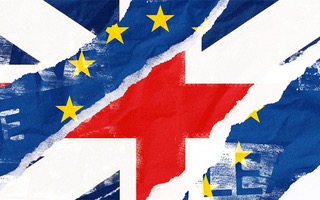
The UK left the EU at the end of January, more than three years after the controversial Brexit referendum. This signalled the beginning of what will be another long process of negotiations, with current EU rules and regulations only continuing to apply to the UK until the end of 2020. With just over 10 months to secure trade agreements, there is a concern that hurried negotiations will result in restrictive and limited deals. Amongst the issues surrounding trade and the economy, social policies and protections face potentially disastrous cuts. It is thought that women and girls will suffer most from the potential loss of and changes to workplace rights, the economy, and human-rights laws.
Research shows that, in the UK, women are more likely than men to be on the lowest incomes and to be living in poverty. Furthermore, the majority of temporary and part-time workers in the UK are women and it is these sorts of jobs that will be cut first if the UK experiences a significant drop in the economy (as is predicted post-Brexit). A bad deal undoubtedly puts women across the UK at risk of losing their jobs and livelihoods.
In addition to the economic dangers Brexit may impose on women, policies such as maternity leave, sexual harassment regulations, and paid holidays, currently implemented and protected by the EU, can theoretically be repealed at the end of the year. The government will be able to make their own standards surrounding the protection of women in the workplace, leaving integral policies vulnerable to a government who have not yet legally bound themselves to maintaining or improving the rights of women in the UK after Brexit.
The EU also provides financial support to organisations dedicated to supporting women in the UK. EU support has helped fund domestic abuse services and research into violence against women. Once this funding is repealed, what will happen to these services? If these fantastic resources are to continue to be available, the government will have to replace the EU funding, committing themselves to supporting women’s protections. However, there has been no confirmation that these services will be protected and funded under Boris Johnson’s deal.
Of course, these consequences are currently all hypothetical. However, there is a general uncertainty and fear about the fate of women’s services and the policies that protect women in a post-Brexit UK. If they are to ensure the safety of all UK citizens, it is integral that Boris Johnson’s government mitigates the negative impacts the loss of EU influence will have on the lives of women and girls in the UK.
-Phoebe Cawley
Junior Girl
Girl Museum Inc.
